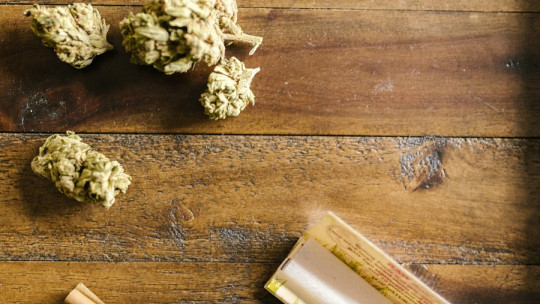Anxiety about not using drugs is one of the most difficult barriers faced by people recovering from addiction. When a person stops using a substance on which they have been dependent, the body and mind react, creating an intense feeling of discomfort that can be overwhelming. This anxiety arises not only from the physical withdrawal syndrome, but also from the fear of not being able to maintain sobriety.
Often, this state of anxiety generates obsessive thoughts about the drug and a strong need to relieve discomfort through its use, which increases the risk of relapse. However, there are effective strategies to manage it, which can help people overcome this obstacle. Let’s see what anxiety is like from not taking drugs and what to do about it. continuing the path to a successful recovery.
Defining the problem: anxiety about not taking drugs
Anxiety about not using drugs is a common and even natural response among people who are in the process of quitting a substance to which they have been addicted. This anxiety arises as a combination of psychological and physiological factors.
From a physiological point of view, the body experiences withdrawal symptoms, since it has become accustomed to the presence of the substance to function in a “normal” way. Psychologically, people can feel overwhelmed by the fear of not being able to resist temptation which increases emotional discomfort. Symptoms of this anxiety may include irritability, restlessness, insomnia, obsessive thoughts about the substance, and feelings of panic.
In many cases, this anxiety can become so intense that it interferes with functioning in daily life, making it difficult to concentrate and well-being. It is a major obstacle in the recovery process that, if not addressed, increases the risk of relapse.
How does anxiety about not using affect recovery?
Anxiety about not taking drugs can be a big obstacle in the recovery process as it affects both the emotional well-being and the person’s ability to remain steadfast in their abstinence. When anxiety becomes intense, it creates a feeling of despair that can push the person to seek immediate relief, increasing the risk of relapse. The mind may rationalize substance use as a quick fix to ease discomfort, reinforcing the cycle of addiction. Additionally, prolonged anxiety can erode motivation and self-control, two crucial factors in rehabilitation success.
This anxiety also affects the body, causing insomnia, fatigue and muscle tension, which in turn increases irritability and general discomfort. These symptoms make it more difficult to concentrate on healthy activities, such as work, school, or personal relationships. Without adequate anxiety management, the person can isolate themselves, which worsens the situation by reducing access to emotional support networks.
Therefore, controlling anxiety is not only vital to avoid relapse, but also to improve quality of life during the recovery process and increase the chances of long-term success.
Strategies to calm anxiety linked to withdrawal
There are different strategies that have been shown to be effective in calming anxiety about not using drugs, which can help people manage this difficult process. Most of them are used by addiction treatment professionals. In this section, we will review some practices that have been shown to be effective in controlling and calming anxiety due to not using drugs.
1. Deep breathing
One of the most useful techniques is deep breathing. This breathing is defined by take a few minutes to breathe slowly and controlled and has been proven to help calm the nervous system, reducing physical and emotional tension. This type of practice, along with muscle relaxation exercises, can be an accessible and easy tool to implement in times of anxiety.
2. Physical exercise
Physical exercise is another key strategy. When you exercise, the body releases endorphins, known colloquially as “happy hormones,” which improve mood and help reduce stress. Even simple activities like walking or stretching can have a positive impact.
3. Cognitive Behavioral Therapy (CBT)
Cognitive-Behavioral Therapy (CBT) has also been shown to be very effective in managing this anxiety. This therapy helps identify and change negative or destructive thought patterns, replacing them with more constructive thoughts that facilitate anxiety control. Through CBT, people can learn to challenge their irrational beliefs about the need for the substance.
4. Social support
Social support also plays a crucial role. Talking to friends, family, or attending support groups can provide a safe space to share experiences, gain compassion, and feel supported in the recovery process.
5. Mindfulness and meditation
Finally, carrying out mindfulness and meditation practices can be useful to keep your mind focused on the present, distancing yourself from obsessive thoughts about drugs and significantly reducing anxiety.
In conclusion, drug-free anxiety is a significant challenge in the recovery process, but it can be managed with the right strategies. Techniques such as deep breathing, physical exercise, cognitive behavioral therapy and social support are key tools to calm anxiety and avoid relapses. In addition, seeking professional support is essential to receive personalized and emotional guidance, improving the chances of success. With a comprehensive approach that includes physical, mental and emotional support, it is possible to overcome anxiety and move towards a drug-free life with greater well-being.









